
Social networks, media and security
The case of Russian trolls and what next?
All American and world media rushed to report the news on 16th February that the Ministry of Justice confirmed that the special investigator Rober Mueller (who was examining the involvement of Russia in American presidential elections in 2016 and possible suspected connections of President Donald Trump with Moscow and Kremlin) accused 13 Russian citizens for wrongful doings that led to Trump’s victory in the elections. The 37-page conspiracy and fraud charge, which was published in full a day later on 17th February, includes the crimes of US citizens identity theft on social networks, attempts to create rallies during the presidential campaign in the US, but also subversion after 7th November 2016 that, according to many, was no less dramatic. US President Donald Trump, who had previously been informed of this indictment said that Russian activities were not decisive for the outcome of the presidential election followed by his victory.

Maria Zakharova, a spokesperson for the Russian Ministry of Foreign Affairs, promptly commented that Mueller's charges were ''absurd'', further ridiculing them on social media, together with other Russian officials, including the Minister of Foreign Affairs Lavrov and President Putin himself.
Ron Hurt, American satirist, humourist and an award-winning radio commentator, wrote on the website of Texas Odessa American journal that Russians love to meddle in the elections of other countries, and especially enjoy all the intrigue that comes in the aftermath. This joy is similar to the one Bin Laden felt after 11th September 2000 and the demolition of the World trade center, while watching how quickly Americans handed their freedoms over to the members of the secret services.
According to Hurt, Russians are “laughing at us because, they spent much less money than Obama did back in the day when he tried to compete with Benjamin Netanyahu in the Israel elections”. He sarcastically adds that Mueller and his team spent $ 20 million to accuse 13 Russians and put in the indictment what was already known, discussed and written about by the American media.
It remains to be seen what will happen in future with Mueller’s investigation and how the process against the 13 accused will be led. Whether Mueller will expand his list of charges and include new names from Russia or connected to it as it was announced on 1st March in New York Post? But even now, the case of Russian trolls influence in USA is valuable in terms of analysing the impact of modern technologies and manipulations on social networks, creation of panic and chaos, intrigue and confusion with political motives. This is all a valuable experience not only for America, but others as well, especially EU or politically and security volatile countries of “special” interest for Russia like Western Balkans states, or Serbia for that matter.
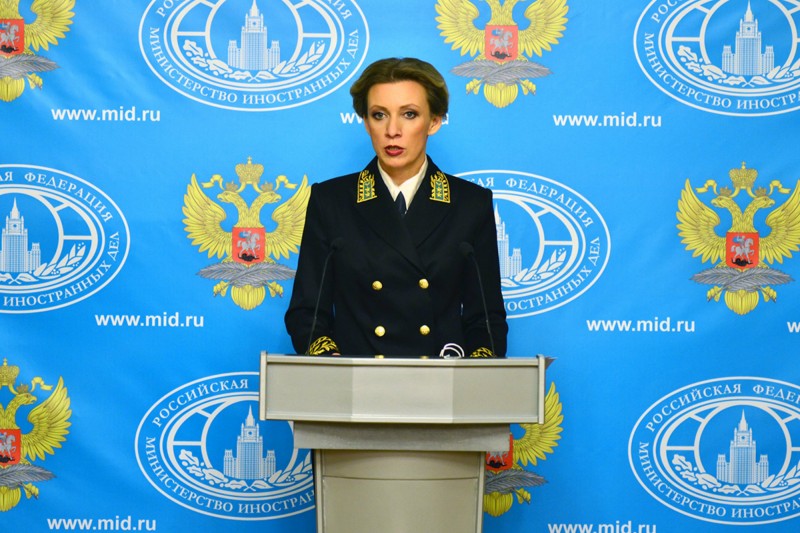
The Anniversary Years
Mueller’s charges against thirteen Russians and organizations accused of malignant impact on the 2016 presidential elections in the United States, happened on the anniversary of the first cyber attacks whose strategists, designers and performers were also - the Russians! This was actually the time when the era of hybrid war began.
Today in 2018, one could remember 2008 when in summer, five days before the military invasion of the Russian armed forces on South Ossetia, websites of the president of Georgia at the time Michael Sakashvili, Georgian Parliament, Ministries of Defense and Foreign Ministry, the Georgian National Bank and two major news agencies were hacked! These cyber attacks were ’efficiently-effective' and they happened in the crucial moments for the defense of Georgia against Russia; they distorted the entire information system of the Government of Georgia, especially on the first day of the aggression on 8th August.
The Russians who agreed with such policies and measures of Moscow and who were active on the Internet were then called „Nationalist hacktivists“, and they were encouraged to join these cyber-attacks, especially over the Russian on-line hacker forum. In particular, the mentioned forum StopGeorgia.ru published the ''target list'' of Georgian sites to be attacked and offered a list of free downloadable programs that were intended to help new hacktivists to promptly join the attacks that were already in progress. This anniversary is however not the only one. In 2017, one could also remember the year 2007, when the topic trolls already circled the world as a nightmare after a famous cyber war in Estonia. The main source of the attacks was again coming from Russia, who was raging over the relocation of the monument to a soldier in Tallinn (a war memorial from the Soviet era), and cyber-attacks were launched on Estonian Parliament, websites of the Ministries in the Estonian government, banks and media outlets. Attacks on these websites were coordinated and included the blockages of e-mails by spam overload or publishing of false data and information. In this case, instructions on how to participate in the attacks were given in Russian on-line chat rooms. As the world was told at the time, Estonia and Georgia were only the preview of what was to be expected in the future when 'cyber warfare' becomes even more drastic. But, even then there were numerous examples of serious challenges to the freedom on Internet, the rights to privacy and freedom of expression.
All this was only re-confirmed in the anniversary years. Only now these questions appear more dramatic than a decade ago when Michael McConnell, the former director of the NSA (US National Intelligence), advocated for the so-called need for ''Internet reconstructing'', indexing of geo-locations, intelligence analysis and assessment of security risks; causing, at the same time, issues of unwanted government control of private e-mails or individual use of Internet search engines and surfing the Web. Facebook, Twitter and other networks only multiplied these concerns and made them greater- as one can see in the case of Mueller and his investigation team.
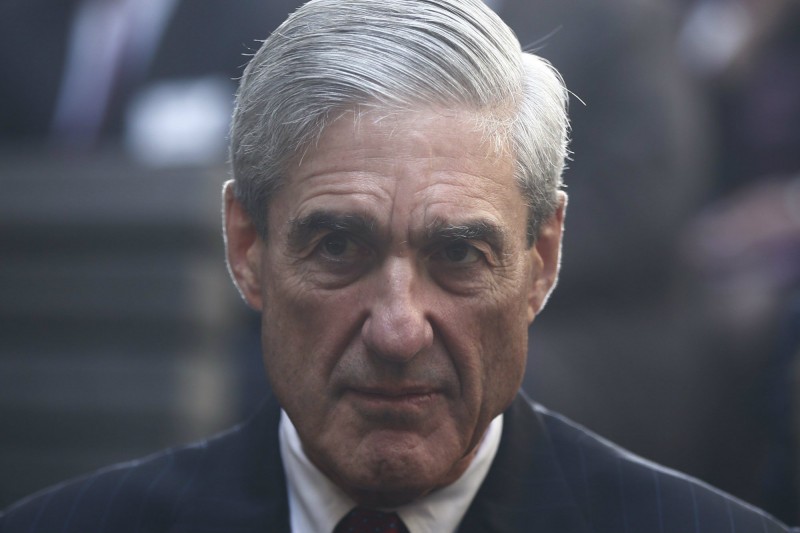
The preparation of strategies and systems for modern propaganda
After the experiments in Estonia and Georgia, according to numerous sources, Russia continued raising its capacities for using the Internet and social media not only to influence the public opinion abroad, but also its own. Especially its own. When Internet first appeared, In Russia it was perceived as some dubious CIA project, especially if used by the “hostile elements'', but soon it turned out that the heirs of Tzar and Bolshevik regimes would quickly learn how to make great use of Internet as a political tool for their own interests. Vyacheslav Volodin, the current president of the Russian Duma (parliament), is often called the chief architect of Russia's response to the challenges of the Internet and social networks. This long-standing and reliable partner, 'Putin’s Cardinal' as the "The Moscow Times" called him on one occasion in 2016, 'the hardliner', and the advocate for preserving the traditions and values of the dogmatic era of the former Soviet Union in Serbia, is famous in Serbia as a fierce protector of Hague prisoners of war crimes such as Ratko Mladic.
On the function of deputy head of Putin's cabinet in the Kremlin, Volodin was assigned with a special set of tasks after large demonstrations in 2011 when tens of thousands protested against alleged fraud in the elections. Special attention was dedicated to the creation of responses and strategies for coping with the challenges that Facebook, Twitter and other social networks caused in the protests in 2011. Naturally, the opposition was using these to their advantage, and among them especially problematic for the government to this day remains Alexei Navalny, the leader of the fight against corruption in Russia. Vyacheslav Volodin is famous for „taming“ the social networks in Russia. One of the first things he did was to install software for control over the Internet traffic of a famous Prism corporation. Russian edition of Forbes magazine (Forbes Russia) claimed that this software program was used for continuous monitoring of 60 million (!) sources, which enabled Volodin to have access to the entire public opinion. In the language of the company, that perceived Internet as ''a battlefield'', in the case of Volodin and Russia, it gave him an opportunity to closely monitor the use of social media, social tensions, and to ensure the reaction of the government to these in a timely manner.
Volodin applied his engineering, legal and ideological experience on many different levels. He is credited with being the initiator of the legislation that made the registration of bloggers mandatory, creating the pool of so-called „blacklisted portals“ where the state was able to access the portal (remove the content or block it) without judicial authorization or the court order. With his name linked to the ''political pressure'' on the Yandex (platform for Internet browsing, which in Russia is used by more than 90% of its customers) as well as on Russian social network similar to Facebook- VKontakte. Platon Mamatov from Yekaterinburg, Russia's fourth largest city, beneath the Ural Mountains, on the border of Europe and Asia, has his own accounts on VKontakte and Facebook as well. This name was mentioned several times in Western media in 2015, when the so-called affair with Russian interference in America via the Internet had started, and culminated with Mueller's charges.
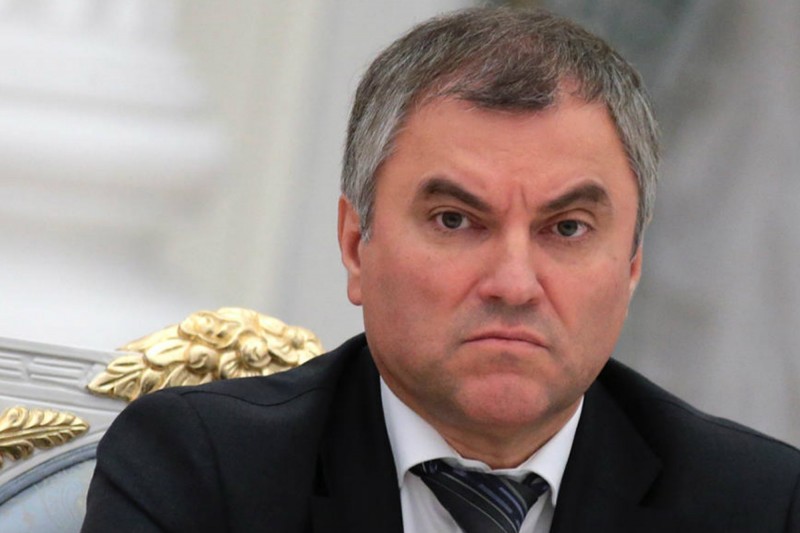
After the ''taming at home“ and placing the domestic situation under control, more attention was devoted to the neighborhood and countries abroad. First, Ukraine; after the annexation of the Crimea and the 'unmarked little green men in uniforms' that appeared in eastern Ukraine, media attention was again turned to the Russian use of the Internet and social networks as a tool of hybrid warfare against Ukraine, similar to Estonia and Georgia.
The Western media, including the New York Daily, then started a series of articles on the Russian agency and its 'army of trolls' tasked with spreading panic and Russian propaganda on-line in the West. This Internet Research Agency (IRA) is the main subject of Mueller’s charges as well. In those headlines from 2015, Plato was usually mentioned along with his quote that the existence of such agency is no news to anyone. It was also said that he himself was the owner of one of such agencies, which operated from 2008 to 2013. During this period, this agency employed between 20 and 40 associates. These were mainly students and youngsters who had good Internet skills and performed 'on-line tasks' they received from people connected with the Kremlin or local and regional authorities from the United Russia party Vladimir Putin, in Eketerininburg and Sverdlovska... Mamatov owns a company for some sort of a local business in Eketerininburg to this day. (McAfee antivirus program reacts with „warning alert'', every time one tries to log on this company’s website, along with a note that it is extremely dangerous and puts the computer at risk.) It is difficult to estimate how many people in Russia today deal with digital propaganda, but Mamatov, who himself studied and specialized in public relations, said that in Russia there are probably ''thousands''. Complex and large propaganda industry was in the process of becoming, well-hidden in a maze of donations and seemingly harmless contracts for seemingly harmless tasks.
Nothing is harmless however. Russian authorities, as a part of digital propaganda architecture designed in Kremlin, hired the most influential media corporations for public relations to devise the social media strategy for their needs. The job was handled with the highest level of care and in great detail - all the way to the famous fashion bloggers engaged to, for example, mainstream pro-Kremlin and pro-Russian attitudes through their standard posts. This culminated with stories that propaganda was even channelled through hired bloggers on gay portals - despite the official discriminatory policy of Russia towards LGBT people. All this could be heard in 2015 and earlier from the activist Elizabeta Surnaceva who is an activist at the Russian Fund for an Open Society and a journalist for Moscow daily Kommersant.
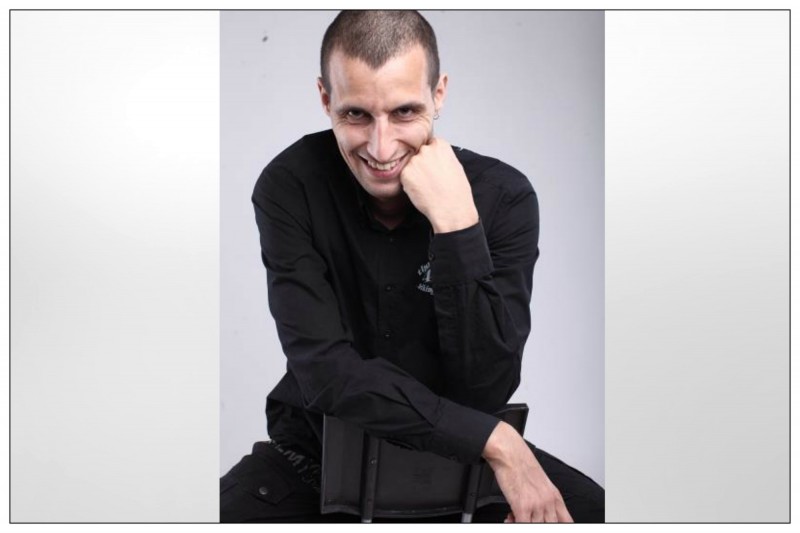
Behind the walls of Russian Propaganda
Only a day after Mueller's indictment was released, the portal Daily Beast published an interview with Russia's Lyudmila Savcuk. She said that she is excited about the indictment, but that it is ridiculous that only 13 names are charged with the stated crimes. ''Hundreds of people should be on that list" she said. Daily Beast called Savcuk (37) the relevant and competent person, whose name is associated with the beginning of the entire story of Russian empire of trolls which has been in the centre of attention since 2015. At the time, it was AFP that did the interview with Lyudmila Savcuk, after which this Russian woman was interviewed by the majority of world’s leading media houses (such as Der Spiegel, Guardian, Washington Post and New York Times) and almost all relevant web portals dealing with the security of the Internet and social networks. Savcuk became a planetary Internet star. Today Lyudmila Savcuk supposedly manages an international internet team that deals with tracing the flow of ''poison'' in which spilling she herself once took part in, “trying to bring them to justice before the Russian courts”- she claims.
In the spring of 2015, in an interview with the French news agency, Savcuk as an insider opened the door IRA (Internet Research Agency). Behind them was a carefully constructed deterrent system of modern propaganda, designed to cause all kinds of instabilities, encourage internal conflicts in some countries, dissemination, lies, inciting conflict and hatred through social networks. With these words, it is the easiest to explain the concept of a troll - which appeared in digital glossaries in the beginning of last decade, usually associated with the term bot, which again involves the same or similar actions and procedures, only automated and performed by a software, unlike the troll who is a - living being. Lyudmila was a Russian troll. Her day job was to post comments on social networks, send messages and posts to the pages from the prepared list which contained addresses and web portals or accounts on Facebook and Twitter. Main component of all posts was the glorification of Russia and Putin (messages like ''Putin is a great, ''EU is falling apart'', ''Europe is decadent'', ''America is evil'' or '' Ukrainians are fascists''). More complex tasks were a part of framing and mind-shaping strategy like ''The Ukrainian government cares more about their soldiers then about their own people'' or ''Ukraine implements reforms to extort money from the IMF''.
Of course, Savcuk did not write all this under her own name. She had several fictitious identities. She was a housewife, a student, an athlete, and in addition to posting and commenting she had an obligation to write to several permanent blogs on different topics. For all this she was pretty well paid. Her salary was more than 800 euros, which for an average Russian salary in Rubles was a quite high amount.

Financial motive was her main reason to participate in these activities, but many volunteers were motivated by patristic feelings as well. Internet in Russia, as elsewhere in the world, has long ago seized to be a mean of communication reserved for the educated, social elite and most progressive intelligentsia, but also a powerful tool available to ordinary people, prone to populism, superficial reasoning, simplifications and all kinds of exclusions. The Agency welcomed such hacktivists and volunteers; including those from foreign countries, such as Montenegro, and Serbia, for example. Bur Savcuk’s level of English was proficient, and she was hired through an official call for applications, like many others with good command of this language. Or Ukrainian. Having passed the first round of selection, she was given the information on the salary, without precise duties for this on-line work, and she was invited for an interview. One of the first questions she was asked on the interview was: '' What do you think about our policy towards Ukraine and the events there?!'
Skills for processing photos or videos represented the additional advantage for being hired at the agency. The opposition daily Novaya Gazeta wrote about all this all the way in 2013, mentioning a building in the suburbs of St Petersburg where 400 people were employed. Savcuk, however, claimed that she worked in a modern facility in Savuškinova Street 55. In the coming months this building will be the most frequently photographed building from St. Petersburg, despite this city’s famous majestic palaces from the time of imperial Russia.
Putin’s Chef and other characters
It is interesting that in June 2015, in response to Der Spiegel’s journalist Benjamin Bidder, Savcuk said that she never met anyone from the executive committee or the management of the agency, but that there were rumors about a man named Yevgeniy Prigozhin. Three years later, this man’s name is published in Mueller’s indictment, as the main financier of the agency in St. Petersburg. Allegedly he spent considerable resources on the agency, the salaries and bonuses of employees which were again linked to his companies, stated in the indictment as Concord Management and Consulting LLC and Concord Catering. If it were not for the cold relations between US, Russia and Mueller’s indictment, Jevgenije would be ideal for the Russian version of the Hollywood story of the American dream: road to glory of small caterer from St. Petersburg, whose delicacies caught the attention of St Peterburg politician - Vladimir Putin. Much later Prigozhin will become known ''Putin’s Chef“ and a person who can easily walk into Kremlin.
In 2013 Forbes will indicate how the former hospitality manager, who has in the become a businessman, entered into 2 billion euros agreement with the Russian state for the supply of meals in schools and the army, and that his catering factory would be visited by the President of Russia himself- Vladimir Putin..
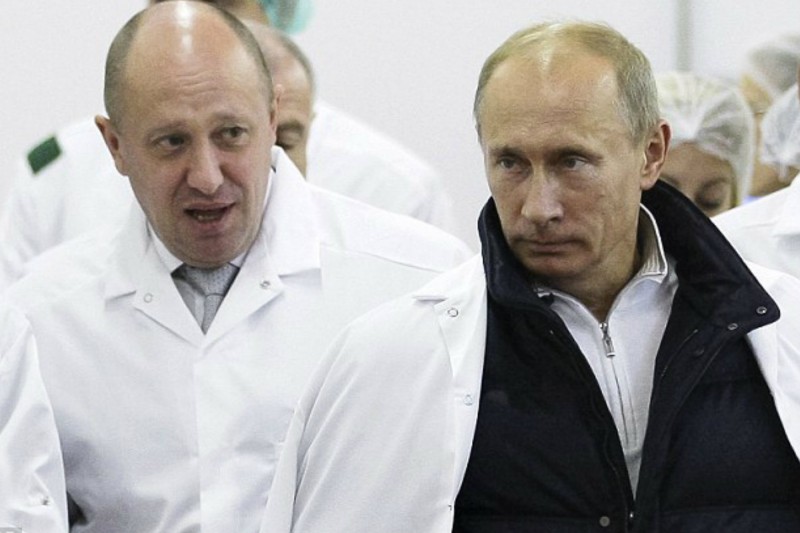
Apart from Prigozhin there are also the names of Mikhail Ivanovich Bystrov, Mikhail Leonidovich Burčika (Mikhail Abramov), Aleksandra Jurjevna wings, Ana Vladislavovna Bogac, Sergei Pavlovich Polozov, Mariaa Anatoljevna Bowden (AKA Maria Anatoljevna Beljaeva), Robert Sergeyevich Bowden, Jeyhun Nasimi Oglio (Aslanov or Džajhun Aslanov or Jay Aslanov), Vadim Vladimirovich Podkopaev, Gleb Igorevich Vasil'chenko, Irina Viktorovna Kaverzina and Vladimir Venkov. (On some of them there are numerous articles on the Internet and can be researched by a simple Google search).
Allegations of Lyudmila Savcuk were confirmed for Western media by other subjects as well. Very soon after the AFP, Radio Free Europe published an interview with another professional from the IRA. Marat Burkhard will describe her work in more detail: that shifts lasted for 12 hours (day and night shifts); the work in the agency was not easy; the daily norm was high, whereby it was envisaged that posts were not longer than 200 characters. (Try to spend hours inventing various short texts on the same subject in a way that they do not resemble each other.) The work was organized in classes and ‘threes’. There were rumors on the Department for Ukraine and the English department. The ’threes’ had one 'malicious troll' who would post a comment or a specific content to the other two members, in order to trigger a '' discussion ''. The ''discussion'' was again led by the chosen keywords. A few were mentioned in the interview: Ukraine news, Russia and Ukraine, Ukraine policy, NATO, PMC (private military company), Shoigu, defense minister, Russian army.
Of course there was a specially designated schedule and plan for dealing with BBC, New York Times or CNN, etc. RSE interviewee said that he once got an order to post that the vast majority of Germans is dissatisfied with the politics of Angela Merkel and supports the policy of Putin. (it was not specified whether the account was created in the ''agency'' or came from the „outside“.) The work in the agency was especially interesting in terms of the „occasional remarks“, for example, that the employees communicated very little amongst each other (except across the screen, in threes) or that all the rooms and their employees were under constant video surveillance. There was also the practice to insert some 30 per cent of false information in real articles, guided by the motto that the half-truths are sometimes worse than pure lies. The most detailed analysis called “the Agency” was published by The New York Times Magazine. The same text was published in Russian on their portal as well. Aside from the information that the public already knew, the journalist Adrian Chen published information that he received from the Anonymous International group, among which was also the name of the executive director of IRA Mikhail's Burchik name that appeared in Mueller’s charges as well.
Chen travelled to the location. Following the links and researching the IRA Department for English language, he found that Katarina Aristova worked there. He managed to meet her in St. Petersburg, but didn’t find out anything, except for the fact that to that meeting in a café across from IRA she was followed by a strange-looking guy that she referred to as her “brother” who had not said a word. Upon Chen’s return from Russia, Federal News Agency FAN published an article titled “What is an American journalist doing in the company of a Russian fascist?” The photograph showed Chen and Aristova’s “brother”. At Chan's surprise Aristova was not in the photograph, although they all sat together in the café and he never met the guy alone on any other occasion. The story can end here with a few more details: FAN Agency was registered in the same building and on the same address as IRA. According to the surprising testimony of FAN’s Editor in Chief Evgeny Zubarev, the Agency ‘left’ from that location.
Zubarev worked for another agency covering the events before this, but also the entire annexation of Crimea. Also it will turn out that FAN is in the system of organizations with, again, Yevgeny Prigozhin. To Chan’s request to confirm or deny this claim, Zubarev replied that his contract does not allow him to publicly talk about the names of the founders, investors or users of FAN. Going back to Katarina Aristova, Google search only shows her closed Facebook profile with a name Katerina, which is less intriguing than the fact that behind this profile, except for English, this person speaks Serbian, Croatian and Albanian as well!
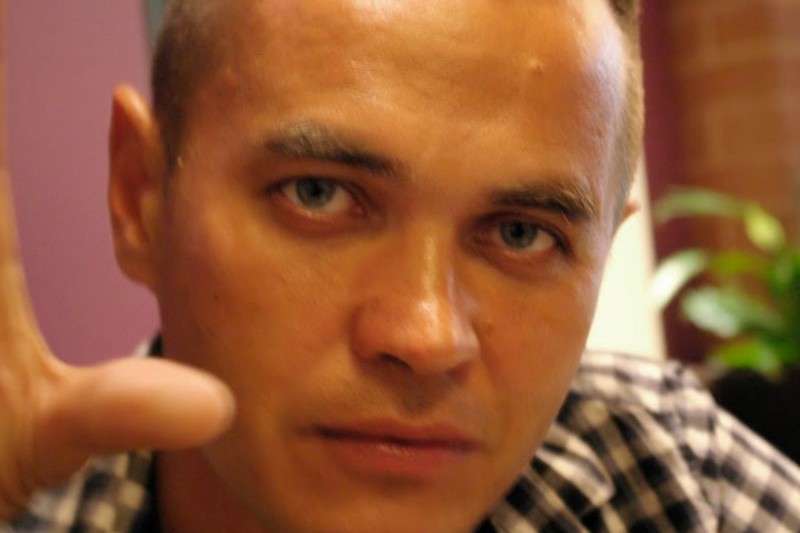
It is interesting that the whole story on the Russian Army of Troll Propaganda began in 2015 and hasn’t stopped to this day. Only for a short while in 2016 it disappeared from the main news, mostly due to the Presidential campaign in USA, but even then, it reappeared when the website of Democrats Election Committee was hacked and when Facebook and Twitter published information on the number of profiles connected to Russia, from which numerous comments, messages and posts were directed at supporting Donald Trump as the President and downgrading Barack Obama and Hillary Clinton.
In mid-January 2018, Washigton Post published a number of 700,000 users who can be linked to Russia and American presidential elections. 3814 profiles on Twitter were directly connected to IRA. In the last crucial 10 weeks before the elections, around 176.000 tweets were posted from these profiles, and 60.000 of them were directly linked to the Russian authorities. Media published that Facebook’s assessment was that content produced by Russian trolls had a reach to 126 million of users! Antidot also published a few analysis and dossiers on these types of hybrid or information wars, and I am using this occasion to turn the reader’s attention to the last two titled “On the line of fire”. They talk about the troll activity against Montenegro prior to its accession to NATO! It is a founded belief that Russian IRA most probably has sections for Western Balkans states (regardless of whether they are located in Russia or Western Balkans). This is especially relevant for Serbia, since a large Russian activity has been detected on portals, social networks and media as well, with an aim of disrupting Serbia’s road to EU.

Instead of the conclusion
The success or failure of Mueller's indictment is not only important for America. It is important on several levels, in particular from the viewpoint of the evident collapse of trust in the media, along with the media in the United States. This trend is not new, but it has significantly accelerated since the troll invasion became a global issue.
*****
The outcome of the process against the 13 charged Russians will significantly influence similar cases all over the world! The case of trolls in America, where this topic is openly and aggressively discussed and written about, presents a rising threat not only to America but Europe as well (remember the cases of trolling in favour of French or German right-wingers).
********
In addition to the general issues, it is also important to address the key questions such as the ways to face these kinds of threats though democratically controlled regulatory mechanisms?
**********
Equally important is the dimension of (ab)use of social networks by security services and potential terrorist groups- all the way to ISIS.
The issue that remains to be solved is the way to face these negative troll practices in the cases of countries and societies which are trying to solve larger political issues (not only elections in USA) such as for example, Serbia’s issue with Kosovo dialogue, NATO and EU? Are the countries and institutions capable to detect the aims of trolling, the addresses and individuals that are organizing these campaigns and deal with these challenges?
*************
The case of Russian trolling showed in a particularly efficient way that for them country borders didn’t exist. This threat is, as it was always said and explained in the context of cyber security, primarily transnational and global.
Serbia has already announced that it will cooperate with Russia Federal Security Service in the field of cyber-security, within the Law on cooperation of the Ministry of Interior (the adoption of this law will be finalized in these days). Also, the public knows very little on the subject of how will Serbia, as a candidate for membership in EU or a member of NATO Partnership for Peace, use the EU NATO center for cyber security that has been set up and placed in Estonia, a country that was the first one to deal with aggressive online cyber war.
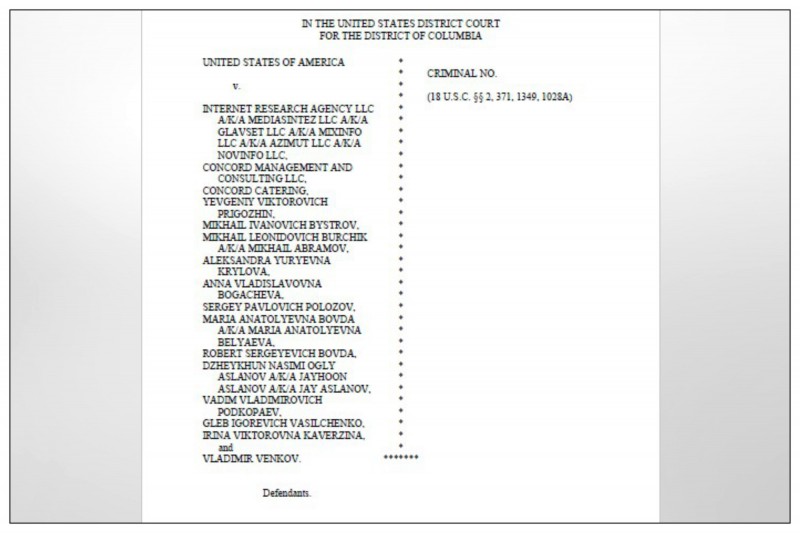
* Text was updated on March 1, 2018
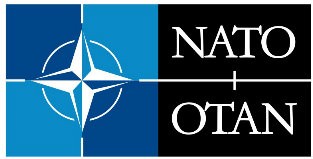
This text is sponsored by NATO PDD.
* The views expressed in this article are the responsibility of the author and do not reflect the views of donors.
